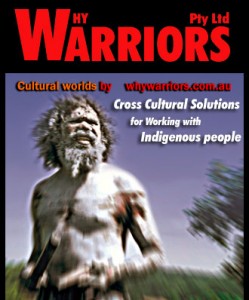An interesting report called “An absence of mutual respect” was released at the beginning of June by our friends at ARDS which gives great insight into the difficulties faced by English second language Aboriginal people. It is a report on the problems that arise for the Yolngu peoples in their relationship with the Australian Balanda (non-indigenous) legal system and it goes some way to explaining part of the reasons why Aboriginal people in the Northern Territory of Australia are so over represented in the Jails. The report is of interest from a cross-cultural perspective because it gives insight to the problems that are arising for Aboriginal people at the cultural interface. First the report highlights the effects of Balanda (non-indigenous people) not understanding Yolngu legal systems and the resentment that this can produce for Yolngu people (see page 12 -14). The executive summary states
During the research, many Yolŋu people expressed the opinion that most non-Aboriginal people demonstrated a serious lack of knowledge and understanding in relation to Yolŋu people, Yolŋu law and Yolŋu ways. Consequently, the current situation was perceived by many Yolŋu as being a two-sided problem. Yolŋu conveyed distress that many Balanda did not even recognise that a Yolŋu legal system was in place, hence the title “Bäyŋu Ŋayaŋu-Dapmaranhamirr Rom ga Ŋorra” which means “no existence of deep and mutual respect”.
The report then goes on to investigate the misunderstanding Yolngu people have about the Balanda legal system. One must really read past the executive summary to get at the real value in this report as the summary fails to highlight the power of the reports content. It is an easy report to read, and is packed full of quotes from Indigenous people and short case studies. The real shock comes from page 21, where the research shows that:
Over 95% of Yolŋu surveyed were unable to correctly identify the meaning of the 30 commonly used English legal terms.
These are words that include:
Accuse/Accused, Bail, Consent, Guarantee, Obliged/Not obliged, Sentence, Alleged, Charge, Directly/Indirectly, Guilty, Offend/Breach, Summons, Appear, Commit, Fail/Failure …
What is interesting in relation to some of the things I have been arguing in relation to Indigenous eduction. For those surveyed who had access to government schools, those born after 1965, 97% of their responses indicated that they had either no understanding, or gave completely incorrect meanings to these legal terms. These Government schools did not use Balanda teachers trained in local languages. Those surveyed who were born prior to 1965 and thus had access personnel on the ‘Missions’ who spoke the local languages, still had a many misunderstandings, but where reported to have a much better understanding of the legal system and they responded with a correct or partially correct understanding of the legal terms 10-20% of the time, as against 3% of the time for those born after 1965 (see page 24).
The report includes a series of studies on how individual words were understood and how this has affected Yolngu individuals in their dealings with the legal system. Perhaps most striking was the perception by some Yolŋu that to be “bailed out” meant they were free, often resulting in them breaking their bail commitments to return to court. In 2005 there were over 5000 warrants out for the arrest of people who had breached bail in the Northern Territory, on current jailing rates 80% of these could have been for Aboriginal people. This is a striking insight to the effects of cross-cultural misunderstandings. It highlights for me the importance of minimising such confusion in my communications with Aboriginal people. I hope it also helps some of you to grasp some of the reasons why things may not work out the way we expect when working with Aboriginal people. Please have a quick read or download the report by clicking here (opens in a new window).




Tim Trudgen •
I just reread this comment and there is something I would like to point out. What this Aboriginal researcher is saying above is true, people need to be given greater levels of control and autonomy over their own lives, this is at the root of problems in Aboriginal communities in Australia. However I wonder if my point about the importance of using local languages is being missed. The language barriers or the lack of utilisation local languages is not just one of the problems. Utilising local languages is a major part of the solution to all the other problems. People can not have equal rights while they have to negotiate the legal, health and educational aspect of their lives in someone else’s language. I address this a post called “Language issues symptom or cause”
Indigenous aboriginal researcher •
Thanks for letting me know about this report, I’ll get a copy. There are numerous problems facing aboriginal peoples, language being just one. The Australian Bureau of Statistics recently released a report on the health and welfare status of aboriginal people – not a pretty picture. Lack of self-determination I believe is one of the major factors driving these other issues: alcohol, drugs, jail, poor education, etc. We need to give them equal rights and allow them to determine their own direction rather then mandating policies from “on high.”